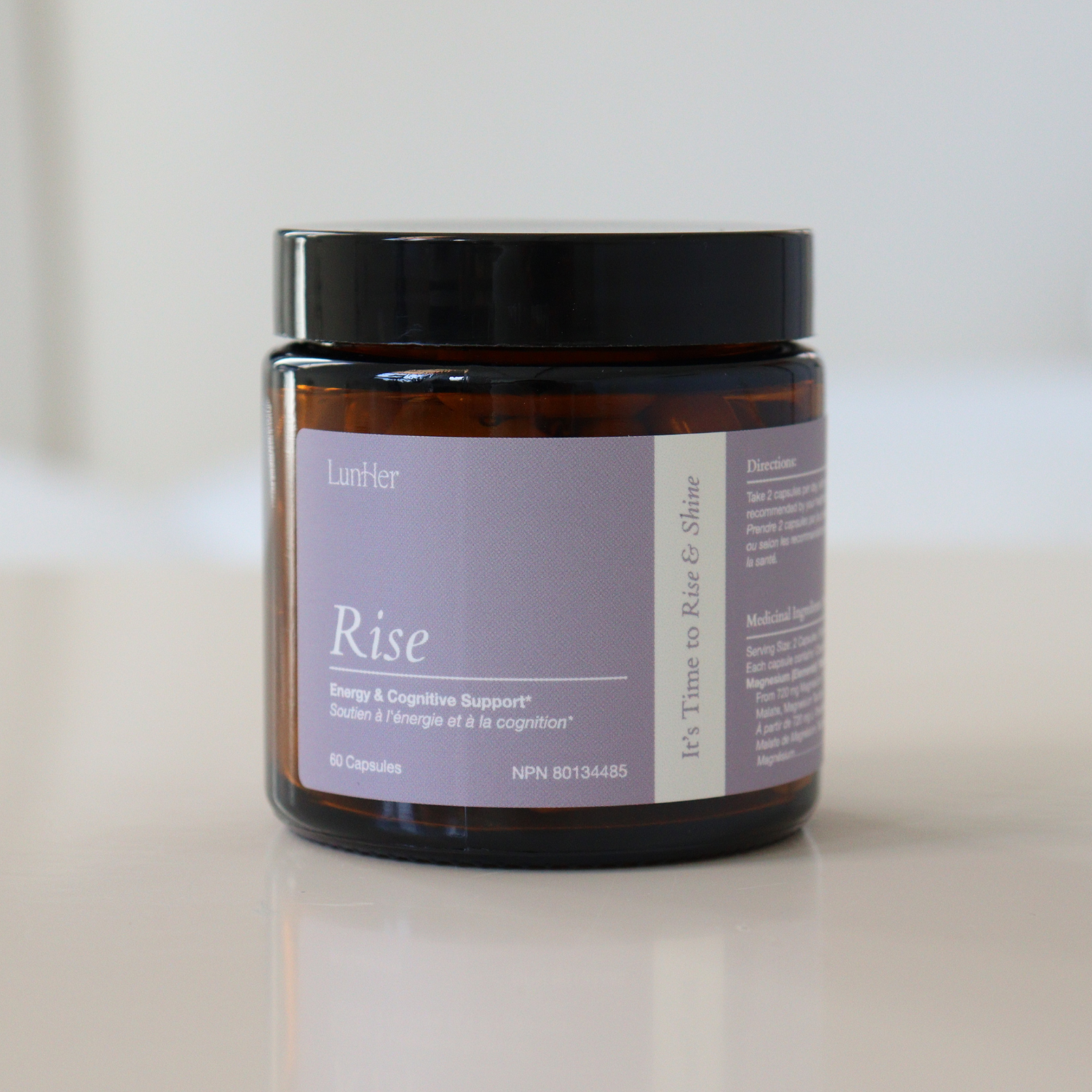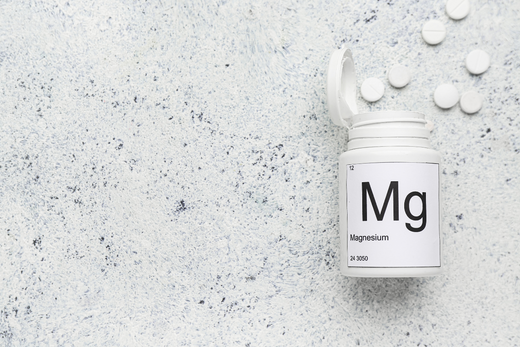
What Are The Benefits of Magnesium For Women? Pregnancy, Fertility, PMS, and More
Written by Our Editorial Team & Medically Reviewed by Dr. Aisling Lanigan, N.D.
Magnesium is a major mineral in the body that serves many essential functions. It can also have some particular health benefits for women.
The LunHer Take
Magnesium is a hugely important mineral in your body, and it can have particular health benefits for women. Consult with a medical professional about whether increasing your magnesium intake can promote your overall health.
What are the benefits of magnesium for women?
Magnesium is a major mineral in the body, found in more than 300 enzyme systems that regulate important biochemical functions in the body. It also helps synthesize DNA, RNA, and the antioxidant glutathione. It’s also very important to bone health and heart health. Some magnesium rich foods include almonds, green leafy vegetables, and peanuts.
While magnesium is vitally important for all people, it has particular importance for women. In this article, we explore some of magnesium’s benefits for all people in general and for women in particular.
Pregnancy benefits
Doing your best to maintain your health when you are pregnant is vitally important, both for you and for the baby growing inside you. Part of maintaining your health involves maintaining healthy magnesium levels. A study from the National Institutes of Health found that many women and pregnant people, especially those from disadvantaged backgrounds, end up with magnesium intakes below the recommended levels. That same study found that taking a magnesium supplement helped ensure healthier pregnancies than those experienced by the placebo group. Magnesium has also been shown to prevent high blood pressure brought on by pregnancy, which in turn can help prevent other complications.
Regulates blood pressure and manages cardiovascular health
This study analyzed adult participants in a cross-sectional nationally representative survey from the National Health and Nutrition Examination Survey 1999–2000. They found that among US adults, 68% consumed less than the recommended daily allowance (RDA) of magnesium, and 19% consumed less than 50% of the RDA. Those whose magnesium intake was below the RDA also happen to have higher levels of a blood marker called CRP. This protein marker may potentially contribute to an increased cardiovascular risk. Consuming the RDA of Magnesium whether through food or supplementation may promote cardiovascular health.
Another recent study showed that maintaining adequate magnesium levels could support heart health. However, more research is necessary to determine its true effectiveness.
May help strengthens bones and muscles
Since more than half of your body’s magnesium is found in your bones, maintaining adequate magnesium levels is vital for bone health. Studies have demonstrated that having lower levels of the magnesium mineral can weaken overall bone health and may possibly lead to greater risk of bone injury. Those who have adequate magnesium levels, on the other hand, tend to have greater bone resiliency. A recent review of twelve studies demonstrated that higher magnesium intake can lead to greater bone density in the femoral neck and hip for older adults.
May aid in the reduction of PMS symptoms
We know how frustrating PMS symptoms can be. What you might not know is this: If you’re having PMS symptoms, there’s a chance you’re also experiencing a magnesium deficiency. Studies show that magnesium supplements can produce significant health benefits for people with PMS symptoms. Moreover, a study from the National Institutes of Health showed taking magnesium with other vitamins can have added benefits. In this study, women who took magnesium with a vitamin B6 supplement showed significant health improvement compared to the placebo group. Magnesium wasn’t helpful in all cases, to be sure – but there’s certainly enough evidence to suggest that it could be helpful to you if PMS symptoms are a problem.
May protect against blood sugar issues
Magnesium plays an important role in glucose metabolism, and it helps maintain healthy blood sugar levels. A meta-analysis of seven studies found that a 100 mg/day increase of magnesium supplement intake resulted in healthier blood sugar levels. A study particular to women also found that magnesium intake resulted in healthier blood sugar levels.
May help eliminate muscle cramps
Muscle cramps can sometimes be caused by mineral depletion, and getting too little magnesium in your diet can also be a contributing factor. Upping your magnesium intake can help address these frustrating cramps.
May help boost mood
A study from the National Institutes of Health found that healthy magnesium levels can promote a healthy, balanced state of mind. Another study – a six-week, double-blind, placebo-controlled study – found that taking 248 mg per day resulted in greater balance in mood and state of mind. These findings are consistent with other research that’s linked low magnesium levels to poor brain health and mood. Magnesium has also been shown to relieve women’s mood changes related to PMS.
May aid in the reduction of stress levels
A study from the National Institutes of Health found that healthy magnesium levels can support a balanced state of mind. Another study – a six-week, double-blind, placebo-controlled study – found that taking 248 mg per day resulted in greater balance in mood.
May improve sleep quality
A study of Chinese adults found that magnesium can be particularly useful for women trying to avoid falling asleep during the daytime. However, the benefits were seen for those women who got magnesium through dietary intake. Other studies have shown that boosting magnesium can improve sleep generally, with a study of older adults finding that taking 500 mg magnesium daily for eight weeks helped them fall asleep faster and sleep longer.
May help relieve pregnancy-induced leg cramps
Leg cramps are quite common for pregnant women. Fortunately, a recent study showed that magnesium supplements can decrease the discomfort from these leg cramps. Per this study, if these kinds of leg cramps are a problem for you, a magnesium supplement can be a “valuable therapeutic tool.”
May help manage migraines
If you struggle with migraines, magnesium might be part of the solution. Some researchers have suggested that people who experience headaches are more likely to have a magnesium deficiency – and some studies have shown that magnesium may help manage headaches.
What is the right dosage of magnesium for women?
The recommended daily allowance (RDA) of magnesium for women is 310-310 mg of magnesium per day. For pregnant women, the RDA goes up to 360 mg/day.





